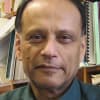
As international policymakers and development experts continue to discuss and focus on integrating the 17 Sustainable Development Goals into on the ground solutions, there is a fundamental challenge that lies just under the surface. Even if we reach the vital goals of poverty eradication, food security and improvements in health, education and gender relations, there is no guarantee that it will be done sustainably.
What is missing from the SDGs and their background documents is an explanation of how governments can assess if the development programs themselves are sustainable.
A prevalent idea is that the only way the SDGs can be realized is by ensuring that the world enjoys healthy rates of economic growth. However, there is a fundamental flaw in this thinking: The universal tool to measure economic growth is the gross domestic product. The problem with measuring growth — and by extension progress toward the SDGs — with GDP is that it is an answer to the wrong question. GDP measures the market value of the final goods and services that are produced in an economy in a period, but it doesn’t measure the way in which it is produced. It doesn’t calculate the depreciation of assets, from wear and tear on manufacturing equipment to misuse and overuse of natural resources and the environment. GDP is increasing in many countries around the world while the factors such as the environment that contribute to its growth are deteriorating.
This is the very definition of unsustainable development. With time, an economy’s capacity to produce goods and services comes under strain, and eventually growth in GDP will become impossible. Those working on the ground in development understand this tension inherently, and must help feed this understanding to the national and international discussions.
What we need in place of GDP as the measure of progress is a balanced tool that looks at progress not at a moment in time, but in the context of where we are headed over time. The correct measure of an economy’s prospects is an inclusive notion of wealth, which reflects the value of the economy's assets; not only manufactured capital such as roads, building, machines and human capital such as health and education of its workforce, but also natural capital such as the atmosphere, oceans, land, soils and the ecosystems they harbor. Economic growth should be measured and understood as growth in this inclusive sense of wealth — or “inclusive wealth” — not just output.
Another way to think about this is to look to the private sector. Imagine a company that reported to shareholders only how much it produced and not the state of the factory and physical infrastructure that produces the widget or the workforce in the factory. No shareholder would abide by this. Globally, we’re all shareholders and for too long we’ve only looked at how much we’re producing. The crisis in front of us is that the infrastructure and supplies of our shared planet can’t be replaced like worn-out machine in a factory can. We have to accurately account for our resources.
Economists have begun to demonstrate that we can have this useful national accounting of inclusive wealth. The authors of the Inclusive Wealth Report 2014, which was a joint publication from the United Nations University and the United Nations Environment Program, examined movements in the wealth of 140 countries over the period 1990-2010. They used official statistics to arrive at the value of manufactured capital and estimated human capital by using data on educational attainment. Owing to severe limitations of data, the inclusion of natural capital in this report was limited to agricultural land, forests as a supply of timber, subsoil resources such as oil and natural gas (but not aquifers) and fisheries. Importantly, the national cost of global climate change, although only partially accounted for, was found to have increased during the period in each of the countries.
To be sure, the data behind inclusive wealth is imprecise. For example, the value of forests and oceans for their broader services — not just potential timber and a home to fish — was not included. But when measuring sustainability it is much better to have an imperfect tool that answers the right question (what is the state of a country’s manufactured, natural and human resources) than a precise answer to the wrong question (how much is a country producing). To me, this is a call to continue improving the data we are collecting, not a reason to avoid asking the tough — but vital — questions.
Assessing whether the SDGs are sustainable will require governments to check that the development programs they undertake to meet them increase their economies' inclusive wealth per capita. As nations work to meet the SDGs, their Statistical Offices should begin preparing wealth accounts and track movements in inclusive wealth over time. Today, no one knows whether the SDGs can be achieved on a sustainable basis.
This is the potential for false comfort in the SDGs. We cannot be blinded by a benchmark outlined by the SDGs that doesn’t consider the path to get there — or the months, years and decades that follow reaching the goals. And we must not let “sustainable” become a buzzword that loses its true meaning.
Join the Devex community and access more in-depth analysis, breaking news and business advice — and a host of other services — on international development, humanitarian aid and global health.








